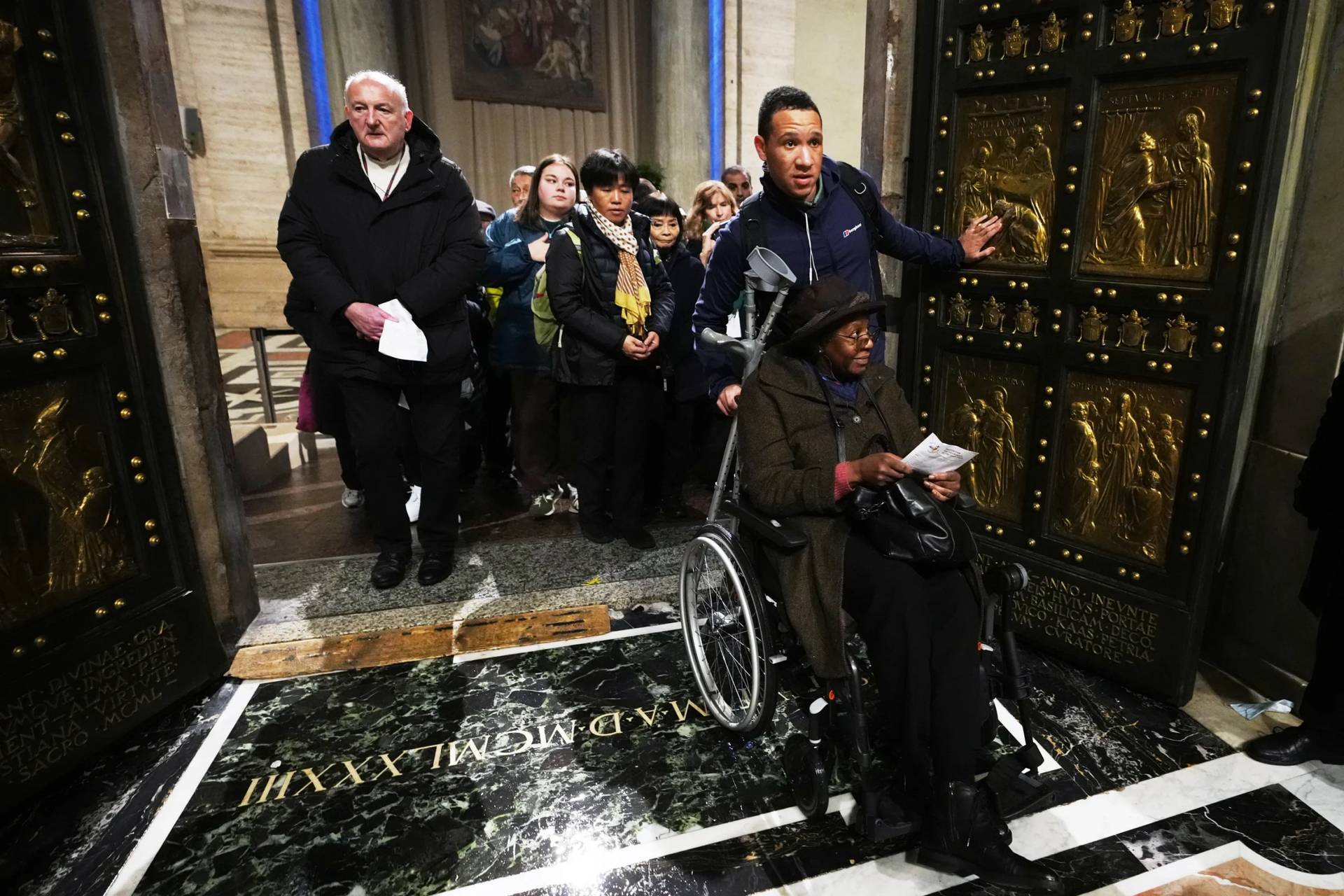ROME — Religious sisters have launched a global movement to overhaul the way religious orders practice their “charism of care” for orphaned or abandoned children.
The Rome-based International Union of Superiors General launched Catholic Care for Children International online Oct. 2, inviting all women’s and men’s religious orders to join the global initiative to end or reduce recourse to institutionalized child care and instead get children into safe and loving family- or community-based care.
This drastic shift, which took shape during a UISG meeting in early 2019, was inspired by a renewed reading of “the signs of the times,” according to the sisters and experts unveiling the new project online.
Those “signs of the times” ranged from the horrific abuse of minors in religious-run institutes to Pope Francis’ hope-filled call for creative multidisciplinary solutions to problems, and from a biblical mandate to care for the least to the latest discoveries and best practices in the social sciences.
But a key moment underpinning the new sister-led initiative was a historic move by the U.N. General Assembly last December.
On the 30th anniversary of the U.N. Convention on the Rights of the Child, the 193 member states unanimously adopted a resolution that recognizes orphanages actually harm children and must be replaced with high-quality family- or community-based care.
The UISG wants to see the world’s religious orders match the nations’ commitment to end the institutionalization of children on a global scale and to exchange best practices, questions and the tools needed to get it done.
Loreto Sister Patricia Murray, secretary of the UISG, said the work will be demanding and will require a lot of formation.
“We have no illusions” about the difficulties in transitioning from an institutional model to a family or family-like model, but “we firmly believe this is the way forward,” she said.
The Catholic Church oversees at least 9,000 orphanages worldwide, serving almost 5 million children, she said. “This is an enormous responsibility.”
The challenge is “to make sure that all in Catholic care receive the very best care possible,” said Kathleen Mahoney, a senior program officer for the GHR Foundation, which is supporting many of these reform initiatives.
Mahoney shared examples from filmed interviews with sisters who have been putting the principles into practice, starting in Zambia in 2014, Uganda in 2015 and Kenya in 2018. The Cabrini Sisters in Swaziland, Sisters of St. Joseph in New York and the Good Shepherd Sisters in Sri Lanka also already have been working to ensure kids are placed with loving families.
Sister Murray said they estimate that at least 80 percent of children living in orphanages have at least one living parent or a close relative and, in general, the children are in the facility because of poverty.
“Can we move our focus to supporting family life,” tackling what drives families to hand over their child’s custody and “read signs of the times in this care sector where our ministry is so important?” she asked.
With his Global Compact on Education, Pope Francis has been asking for new and creative ways to provide what children need for sound development — nurturing and a sense of belonging that only a family can fully provide, Murray said.
Janestic Twikirize, a professor and expert in child rights and care, who works with religious in Uganda, said supporting kids means supporting and strengthening families, communities and social services, and tackling what drives family separation.
“We minister to children through ministering to whole families,” she said, with direct financial support as well as psychological, educational, social and legal assistance, all geared to prevent separation as well as abuse in a family.
Murray said, “We have learned from the past and we have learned from our failures.”
In general, in the past, she said, the sisters had “a very big heart,” loved children and “wanted to offer them love and a home, however, they were often working in very demanding environments which really required formation and training as social workers, psychologists and counselors.”
Those sisters managed as best as they could with often “meager resources” and they were also “part of the culture of their day, when discipline was strict and sometimes harsh even in families,” the Irish sister said.
Even if harsh discipline was considered acceptable then, “past behavior is judged by present-day standards,” she said, and people insist, “you should have known better as sisters, you should have been leading the change.”
This is the context from which the new movement for care reform comes: “Aware of our past failures but knowing that we have much to contribute moving into the future. That we can be in the frontline of change,” Murray said.
Twikirize said genuine reform cannot happen without making sure those working with minors and families have the right skills in child protection, social assistance, advocacy and case management and oversight.
In fact, volunteers in residential homes and orphanages are discouraged, she said, because having so many different adult caregivers come and go disrupts the child’s ability to form secure attachments, she said.
Sri Lankan Good Shepherd Sister Niluka Perera, coordinator of Catholic Care for Children International, said the movement is built on “three pillars”: Church teachings and the biblical mandate to care for the vulnerable; the latest research and skills in social sciences and human development; and the principles in the U.N. Convention on the Rights of the Child on a child’s right to a family and guidelines for alternative forms of care.
“No child should be placed in an institution simply because the family is poor or finds it difficult to access basic health services, social protection or education,” she said.
The new initiative is inviting all religious conferences and religious congregations to take part to build a global network, Perera said.
“CCI wishes to see that religious women and men are champions in care reform,” she said. “Surely together we can bring about this change.”













